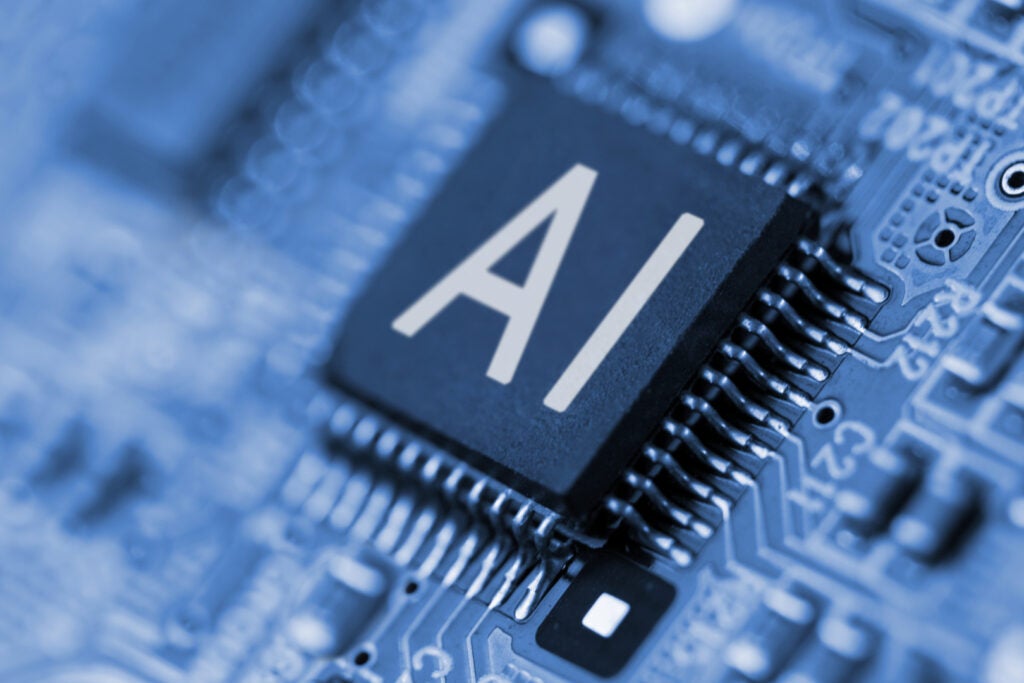AI Improves, but Raises Alarms: Tech Experts Warn of New Risks as Models Advance

- Morgan Stangely has estimated that generative AI revenue could surpass $1.1 trillion by 2028
- To take advantage of that expansion, technology firms such as OpenAI Meta, along with Alphabet, has been hurriedly pushing their products into the marketplace.
- Now, tech experts are warning that in doing so these companies have been sacrificing the safety and security of their products
Technology specialists are worried that security is being sidelined for profitability in the realm of AI advancement. CNBC reports.
In the initial stages of artificial intelligence, firms such as Meta META, and Alphabet (NASDAQ:) prioritized research. GOOG , GOOGL)), and OpenAI However, the launch of ChatGPT at the end of 2022 altered this situation, as reported by the source. Once this revolutionary chatbot gained massive popularity and generated significant revenue, other large corporations became aware and started hastening the release of their respective AI systems into the marketplace.
Don't Miss:
- Hasbro, MGM, and Skechers trust this AI marketing firm — Invest sooner rather than later.
- 'Scrolling Toward UBI' — The No. 1 quickest-expanding software firm according to Deloitte lets individuals make cash through their mobile devices. You can start investing today at only $0.30 per share with a minimum investment of $1000.
In March, Morgan Stanley It’s estimated that the generative AI sector might exceed revenues of over $1.1 trillion by 2028, indicating substantial market opportunities and considerable room for expansion. However, according to reports from CNBC citing industry insiders, numerous businesses are bypassing thorough safety assessments of their AI systems prior to deployment as they aim to maintain a competitive edge.
James White , Chief Technology Officer at CalypsoAI CNBC reported that emerging AI models are prioritizing response quality over security, making them more susceptible to harmful inputs. According to White, “While these models have improved, they’re now also more prone to perform nefarious tasks.” He further noted, “They can be easily manipulated into doing undesirable things.”
White, whose company runs safety and security audits of popular models from Meta, Google, OpenAI among others, says that this shift is readily apparent at companies like Meta and Alphabet.
Trending: Maker of the $60,000 foldable home has 3 factory buildings, 600+ houses built, and big plans to solve housing — This is your final opportunity to invest at $0.80 per share.
Insiders told CNBC that Meta has shifted focus away from its AI research arm, known as the Fundamental Artificial Intelligence Research unit, giving more priority instead to Meta GenAI initiatives. In parallel, Alphabet has merged its research team, Google Brain, into its DeepMind department, streamlining efforts towards developing innovative AI products.
Other specialists concur with White, informing CNBC that workers feel immense pressure due to rapidly shrinking project deadlines. This makes them believe they cannot lag behind in launching new models and goods. Amidst such stress, their focus shifts away from security measures towards improving skills and efficiency.
Google's Gemini 2.5 model, which was released in March, is a perfect example of this. According to CNBC, for weeks after its release, Gemini 2.5 was missing its model card, a common tool for AI transparency that shares information about how the model works, its limitations, and any potential dangers.
See Also: The team behind $6B+ in licensing deals is now building the next billion-dollar IP empire — invest early at $2.25/share.
In a memo obtained by CNBC a month before Gemini 2.5's release, Google co-founder Sergey Brin He informed both DeepMind and Gemini employees that “the concluding sprint towards AGI has begun.” He emphasized, saying, “We possess every element required to triumph in this competition; however, we must significantly accelerate our endeavors,” adding that Google needs to expedite the AI development cycle and cease engaging in minor adjustments and excessive fine-tuning of their products.
"We can't keep building nanny products," Brin wrote. "Our products are overrun with filters and punts of various kinds."
Read Next:
- Invest where it stings — and aid millions recover: Invest in Cytonics and aid in disrupting a $390 billion stronghold within the pharmaceutical industry. .
- Drawing inspiration from Uber and Airbnb, Deloitte’s quickest-rising software firm is turning 7 billion smartphones into revenue-creating tools. with $1,000 you can invest at just $0.30/share!
Image: Shutterstock
© 2024 . does not provide investment advice. All rights reserved.
This article 'The Models Are Getting Better, But They're Also More Likely To Be Good At Bad Stuff,' Tech Experts Sound The Alarm As AI Charges On originally appeared on .
Belum ada Komentar untuk "AI Improves, but Raises Alarms: Tech Experts Warn of New Risks as Models Advance"
Posting Komentar